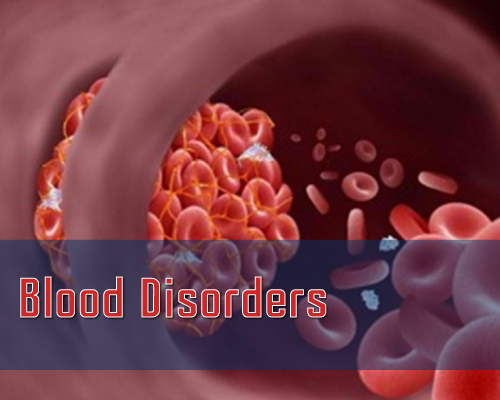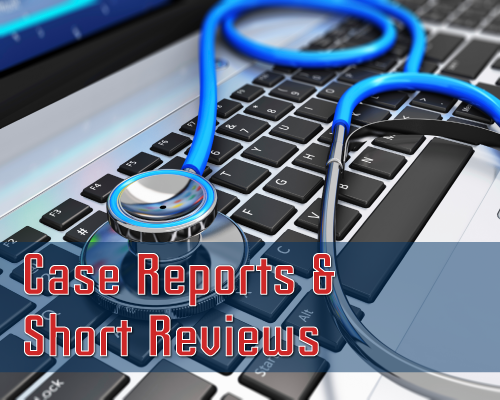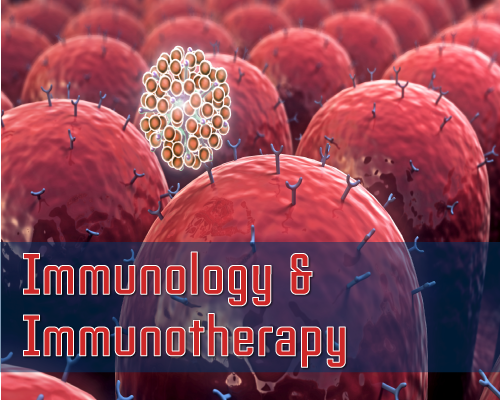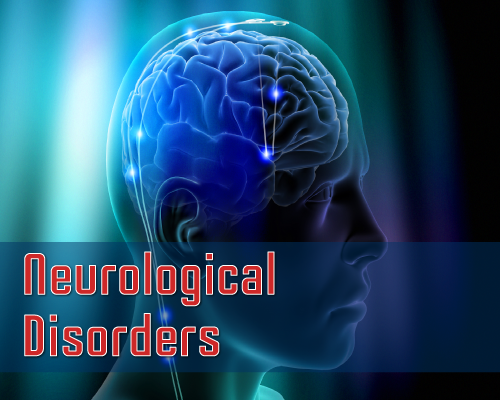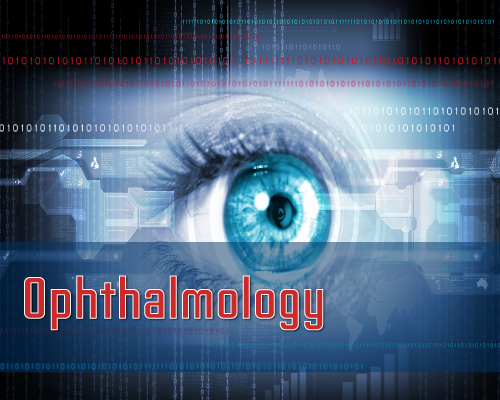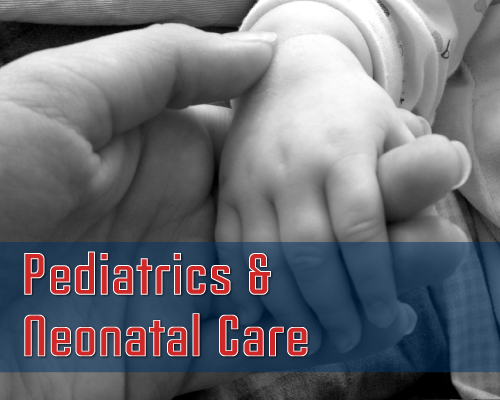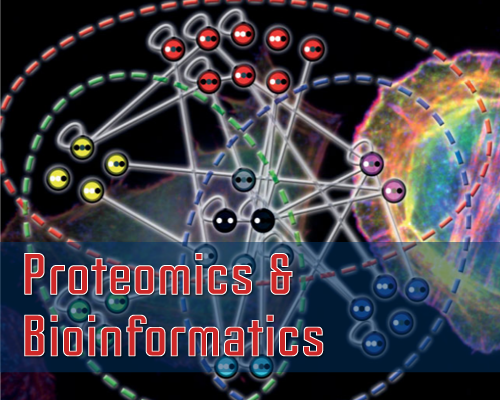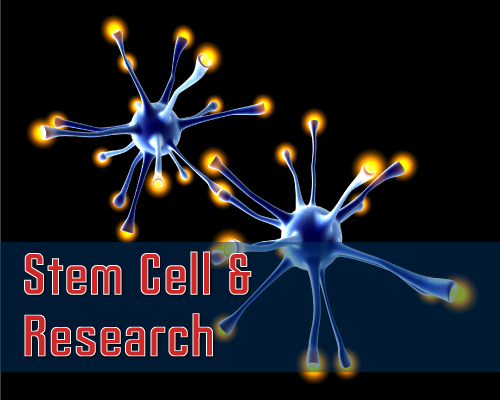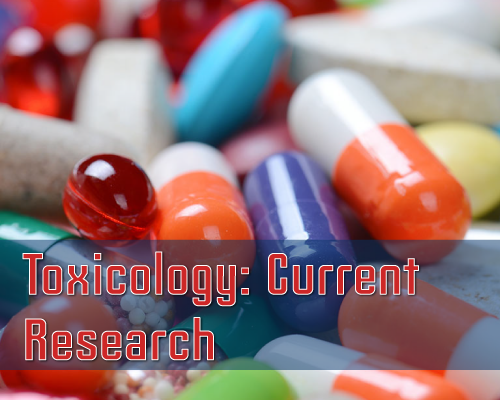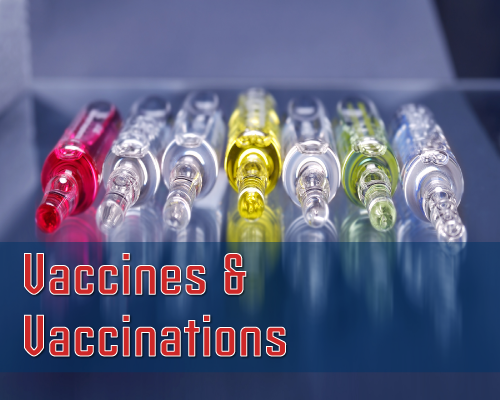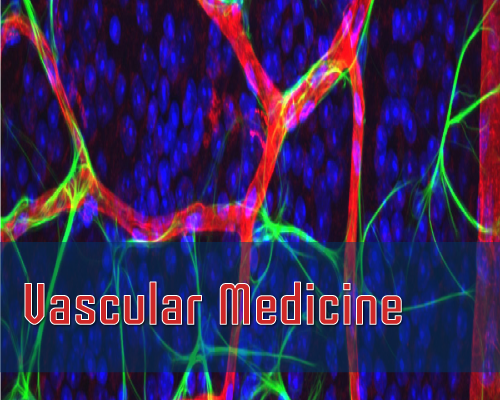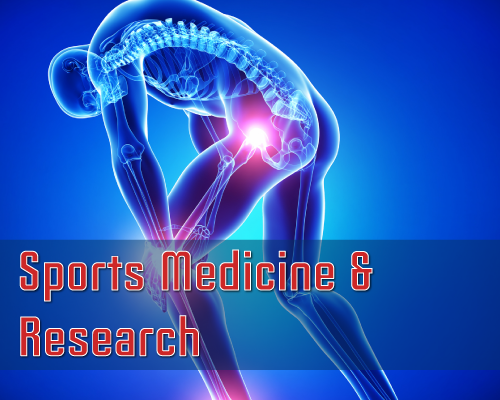Mary V Seeman*
Department of Psychiatry, University of Toronto, Toronto, Ontario, Canada
*Address for Correspondence: Mary V Seeman, Department of Psychiatry, University of Toronto. Suite #605 Heath St. W. Toronto, Ontario, Canada, Tel: +1 416 486 3456; E-mail: mary.seeman@utoronto.ca
Dates: 09 September 2017; Approved: 25 September 2017; Published: 27 September 2017
Citation this article: Seeman MV. Prescription Drugs Parents Take: Consequences for Children. Sci J Depress Anxiety. 2017;1(1): 008-013.
Copyright: © Seeman MV. This is an open access article distributed under the Creative Commons Attribution License, which permits unrestricted use, distribution, and reproduction in any medium, provided the original work is properly cited.
Keywords: Psychotropic Drugs; Side-Effects; Parenting Behaviors; Modeling
Abstract
Background: It is known that drugs taken by a mother during pregnancy and lactation have the potential of directly affecting offspring, but little is known about the indirect effects of parental drug-taking on older children, as mediated by the impact of their side effects on parenting quality and by the consequences of social modeling.
Aim: This narrative review describes specific psychotropic-induced effects on parents that have the ability of impacting the health of their children.
Method: Terms pertaining to side effects of psychiatric drugs were searched in the Google Scholar database for linkage with health problems in children
Results: Potential linkages were found for sedation, mobility, obesity, pain, dizziness, overstimulation, and mental confusion.
Conclusion:Although it may be impossible to distinguish the effect on children’s health of parental illness versus treatment of that illness, it is important for clinicians to keep in mind that the adverse effects of drugs can impact not only patients, but also, indirectly, their children.
Introduction
It is well-recognized that prescription drugs taken by a mother during pregnancy and/or lactation can negatively affect the growth and development of offspring, but no attention has been paid to the potential downstream effect on children of parental drug intake. The side effects of postnatal parental drugs can have an impact on children. One universally known health hazard of this nature is second hand smoke exposure, a result of parental smoking. In a 192-country study conducted in 2010, the World Health Organization established the fact that the largest health burden of second hand smoke is lower respiratory infections in children under 5 years of age [1]. The second-hand smoke to which children of smokers are exposed is more toxic than directly-inhaled smoke. Furthermore, third-hand smoke (the accumulation of aging smoke residue on floor and furniture surfaces in the home) is even more toxic [2]. This has important implications for the health of chronically exposed children once they reach adulthood.
Other unhealthy substances used by parents (alcohol, marijuana, opiates, amphetamines, cocaine) affect children second-hand because of the unpredictable parent behavior that accompanies their use. Children suffer neglect, fear and abuse when parents use addictive substances [3]. As a consequence, they sometimes develop conduct disorders and school problems in childhood, and substance abuse disorders in their teens, as well as a large number of otherwise preventable medical disorders as they age [4,5]. In addition, throughout life, they remain at increased risk for a wide variety of emotional, social, and behavioral problems [6].
What has never been investigated is whether prescription drugs that mothers and fathers need to take over extended periods can pose indirect harm to children. There is reason to believe that they can. Child experts agree that ‘good enough’ parenting [7] needs to be grounded in secure early attachments with parents who are attuned and responsive to an infant’s often very subtle cues [8,9]. A parent who is sedated or over-stimulated because of the medications they take can easily misunderstand an infant’s non-verbal cues, with subsequent negative effect on mother-child attachment. A parent on stimulant drugs may become impatient or irritated. On stimulants, a parent may not need much sleep, and consequently may not provide children with sufficient amounts of resting time. On stimulants, a parent may need little food, and consequently may not provide children with adequate nutrition. A parent on sedative medication may be inattentive to the rapidly changing needs of the child. As a result, the child may suffer neglect. Furthermore, as children grow, mirroring and modeling of parental behaviors may turn the children of parents affected by their medications into inattentive or overly agitated adults [10].
Besides sedation and overstimulation, therapeutic drugs used in psychiatry (antidepressants, anxiolytics, stimulants, antipsychotics, lithium salts, sedatives, analgesics, and mood stabilizers) may produce several other adverse effects that can potentially impact children [11]. Most emergency visits involving side effects of psychiatric medications have been reported to involve women, and most have been found to occur in adults aged between 19 and 44 [11], the period when young children may well be in the home.
The website https://sideeffects.embl.de/se/C0085632/ lists the potential side effects of drugs in general, most of which can be induced by psychiatric drugs and many of which can potentially exert secondary effects on children.
Method
This narrative review is a result of searching the multidisciplinary database, Google Scholar, for terms that link the various potential side effects of psychiatric drugs in adults to health problems in children. Where there were many such reports for a particular side effect, only the more recent papers were retained. This is a selective review and many excellent papers have had to be omitted for reasons of space. Only those side effects with the greatest potential impact on children are discussed below.
Altered mental state
Sedation is a frequent side effect of therapeutic drugs [12]. Drugs that induce sedation are antidepressants [13], antipsychotics [14], and also analgesics, antihistamines, dopamine agonists, HIV medications, antihypertensive, anxiolytics, hypnotics, adrenergic blockers, and antiemetics [15]. Sleepy parents pose not only a potential risk to themselves [16], but also to their children [17,18]. They may forget or neglect to attend to parenting responsibilities. Sedative medications are known to impair visual, cognitive, and motor abilities needed for safe driving [19]. When under the influence of sedating drugs, parents may be unable to adequately supervise or protect their children from harm.
A sleepy parent is potentially neglectful of dangers and, at the same time, unable to provide appropriate stimulation for children, or to react appropriately to a child’s expression of emotion [20]. A tired parent tends to avoid company, is not interested in play or outdoor activities, and may exhibit apathy and blunted affect, which, through the process of emotional contagion, children may learn to assume [21-24].
Parental responsiveness to a child has important implications for a wide range of child outcomes: attachment, security, compliance, behavior problems, and cognitive and emotional development [20,25]. What happens during the early years plays a decisive role in the development of a child’s emotional expressiveness, emotion self-regulation, and emotional understanding of others. Importantly, a child’s emotional expressions and regulation strategies have been found to depend on the caregiver’s activity/passivity levels in relation to the child [26].
Another result of drug-induced lethargy and fatigue is a sedentary life, which, in the long run, is not healthy for children, regular physical activity being a well- documented contributor to the health and quality of life at all ages. Low levels of physical activity, an excess of screen time, whether with TV or with a digital device, has been negatively associated with a variety of physical and mental health indicators in children. Although studies are not always in agreement, inactivity on the part of parents does appear to be mimicked by children as they age [27-30]. There is no controversy about the downside of screen time; the more parents watch TV, play video games, and use computers, the more their children will do the same, to the detriment of their health [31,32].
Mobility problems
Some psychotropic drugs limit activity not by causing fatigue and sedation but by effects on nerves and muscles (extrapyramidal side effects) such as muscle stiffness, tremor, twitching, cramps or dystonias and dyskinesias [33]. Anticholinergic medications, often used to counteract such effects, can, on the other hand, increase the risk of falls and fractures [34]. Motor imbalance can be caused by almost 100 individual drugs, lithium being one of the worst offenders [35]. In addition, many psychoactive drugs lower the seizure threshold and increase the risk of epileptic seizures [36-39].
Such motor effects in parents are frightening to children and are highly visible, tending to embarrass children in front of their peers, and consequently to affect their emotional wellbeing. This has been documented in children whose parents suffer from diseases characterized by motor disabilities [40-43].
Obesity
Many psychotherapeutic drugs are reported to cause weight gain [44] by increasing appetite and lowering rate of metabolism. The person taking such drugs eats more, and may snack in between meals and parental eating behavior is observed and automatically copied by children [45]. In a review of 64 experimental studies, Cruwysa et al. 2015 [46] describe a significant social modeling effect for eating. Modeling appears to govern both the extent of food intake and also food choice. Parents more than others influence children’s eating habits [47]. Even in adolescence when the influence of peers begins to overtake that of parents in most areas of life, parental impact is still paramount when it comes to food intake [48]. The availability of healthy/unhealthy food at home is a major determinant of obesity in children and youth [49,50]. Child obesity negatively affects cognition (learning, memory, motivation, attention, neurodegeneration) [51]. In addition, offspring of obese mothers are at higher risk than comparable others of developing obesity, asthma, coronary heart disease, diabetes, and stroke.
Pain
Pain is another adverse effect of chronic drug intake. Very prevalent is headache caused by medication overuse or medication withdrawal. Such headaches have been attributed to long term use of caffeine, analgesics, anxiolytics, anti-inflammatory, or sedative drugs, especially in the context of smoking and inactivity [52-54]. Along with several other drugs, antidepressants are known to cause a serotonin syndrome (tremor, fever, hypermobility, sweating), which can include headache [55,56]. Statins, widely used by patients, frequently cause muscle pain and weakness [57] and anti-inflammatory drugs, even more widely used, cause gastrointestinal upset and pain [58,59].
As already discussed, children tend to imitate their parents, and children’s chronic pain and chronic use of analgesics in adolescence and adulthood can often be traced to pain experienced by parents in childhood [60-64]. Chronic pain is intergenerational. Through the process of modeling, parental pain increases the risk for pain and adverse mental and physical health outcomes in offspring.
Dizziness
The list of drugs that can cause vertigo or dizziness includes anti-convulsants, anesthetics, anti-depressants, analgesics, anti-diabetics, contraceptives, anti-inflammatory drugs, cardiovascular drugs, sedatives, tranquillizers, cytotoxic agents, and anti-hypertensive agents [65]. Abrupt discontinuation of Selective Serotonin Reuptake Inhibitors (SSRIs) can also cause dizziness or vertigo. Parental dizziness will constrain activities that parents and children take part in together. While the transmission if dizziness from parent to child via modeling has not been reported, it remains a possibility.
Stimulation/Disinhibition
Stimulants used for ADHD or for depression or eating disorders distort sleep-wake cycles [66] so that parents on stimulant drugs may not appreciate that their child requires more down time than they do. Due to the appetite suppressant effects of stimulants, parents may not feel hungry and may fail to consider their child’s need for regular meals. Such effects have been reported in parents suffering from attention deficit disorder [67].
Memory/confusion/communication
Psychiatric drugs, especially those with an anticholinergic component, negatively affect memory, and lead to confusion in the parent and difficulties of communication with children [68-71]. This may not be as much of a problem for young parents but becomes of increasing importance as the person taking these drugs ages. Many children of psychiatric patients are brought up by grandparents [72] who may, because of age and accumulating maladies, be prescribed several drugs with anticholinergic properties. Forgetfulness and unclear communication result and may lead to significant safety and mental health concerns for children. All parental disability, including that resulting from medications, has the potential to affect children [73,74], with variable long term effects [10].
Discussion
Drugs that are effective will inevitably produce unwanted side effects in a portion of the population for whom they are prescribed and many of these side effects have the potential of negatively affecting children. The age and vulnerability of the child, as well as the familial context, will determine how much or how little a child is affected. When there is a negative effect, it may be impossible to determine whether it results from medication use or from the disease for which the parent is being treated, or from other unknown causes. Being aware of the potential negative effects of drugs does not mean advocating against the drugs since they are needed to address the parent’s disease. What it does mean is that clinicians need to ensure that those to whom drugs are prescribed understand the range of side effects their drugs can induce. Should such effects emerge, it means re-assessing the dose of the drug, the frequency with which it is taken, its interaction with other drugs, and raising the possibility of alternative treatments. It means never forgetting to ask about children in the home, their ages, and their vulnerabilities. Parents with mental illness need not only to talk to their children about the symptoms of their illness [75] but also about the effects of the drugs they are taking. Children feel better and do better when they have more information [76].
Offspring of parents who suffer from psychiatric disorders show high risk for mental disorders [77]. Helpful prevention includes normalizing the parents’ behaviors and informing children about both symptoms and side effects of their parents’ illnesses and treatments, while, at the same time monitoring and supporting children’s healthy growth and development.
Conclusion
Psychiatric drugs can cause sedation, impair mobility, increase the risk for obesity, cause pain and dizziness; they can overstimulate and lead to mental confusion and disordered communication. In individuals who are parents, all these effects impair parenting ability and can result in conditions and behaviors that are harmful to children. Such behaviors can also be copied by children, to their eventual detriment. The relatively poor health outcomes of children of parents who suffer from mental illness may, to some extent (however minor), be attributable to the indirect effects of their parents’ treatments.
| Table 1: Side Effects of Psychiatric Drugs |
| Abnormal behavior or mood, anxiety, depression, disinhibition, irritability, impatience, agitation, rage, aggression, distractibility |
| Altered mental status, apathy, blunted affect, decreased interest, sedation, fatigue, |
| Cardiorespiratory effects (palpitations, arrhythmia), trouble breathing |
| Disturbance in consciousness, confusion, disorientation, delirium, sleepwalking |
| Imbalance, dizziness, vertigo, falls, injuries |
| Pain, headache, gastrointestinal pain, muscle pain |
| Movement disorder, spasticity, tremor, clumsiness, muscle stiffness, twitching, spasms, restlessness, agitation |
| Eating disorders hunger, anorexia, nausea, diarrhea |
| Sexual problems |
References
- Oberg M, Jaakkola MS, Woodward A, Peruga A, Pruss-Ustün A. Worldwide Burden of Disease from Exposure to Second-Hand Smoke: A Retrospective Analysis of Data from 192 Countries. Lancet. 2011; 377: 139-146. https://goo.gl/pvJdbX
- Martins-Green M, Adhami N, Frankos M, Valdez M, Goodwin B, Lyubovitsky J, et al. Cigarette Smoke Toxins Deposited on Surfaces: Implications for Human Health. PloS One. 2014; 9: 86391. https://goo.gl/DY6F6j
- Kepple NJ. The Complex Nature of Parental Substance Use: Examining Past Year and Prior Use Behaviors as Correlates of Child Maltreatment Frequency. Subst Use Misuse. 2017; 52: 811-821. https://goo.gl/XqTLwb
- Bountress K, Chassin L. Risk for Behavior Problems in Children of Parents with Substance Use Disorders. Am J Orthopsychiatry. 2015; 85: 275-286. https://goo.gl/3TFgdK
- Bountress K, Chassin L, Lemery-Chalfant K. Parent and Peer Influences on Emerging Adult Substance Use Disorder: A Genetically Informed Study. Dev Psychopathol.2017; 29: 121-142. https://goo.gl/24ApRv
- Solis JM, Shadur JM, Burns AR, Hussong AM. Understanding the Diverse Needs of Children whose Parents Abuse Substances. Curr Drug Abuse Re. 2012; 5: 135-147. https://goo.gl/Yifiu5
- Hoghughi M, Speight AN. Good Enough Parenting for All Children—A Strategy for a Healthier Society. Arch Dis Childhood. 1998; 78: 293-296. https://goo.gl/YaAYcX
- Gartstein MA, Iverson S. Attachment Security: The Role of Infant, Maternal, and Contextual Factors. Int J Psychol Psychologic Ther. 2014; 14: 261-276. https://goo.gl/kbLpWx
- Susman-Stillman A, Kalkoske M, Egeland B, Waldman I. Infant Temperament and Maternal Sensitivity as Predictors of Attachment Security. Infant Behav Develop. 1996; 19: 33-47. https://goo.gl/3WRE6M
- Sroufe LA, Coffino B, Carlson EA. Conceptualizing the Role of Early Experience: Lessons from the Minnesota Longitudinal Study. Dev Rev. 2010; 30: 36–51. https://goo.gl/MYsmG4
- Hampton LM, Daubresse M, Chang H-Y, Alexander GC, Budnitz DS. Emergency Department Visits by Adults for Psychiatric Medication Adverse Events. JAMA Psychiatry. 2014; 71: 1006-1014. https://goo.gl/2NJeMW
- Qureshi A, Lee-Chiong T Jr. Medications and their effects on sleep. Med Clin N Am. 2004; 88: 751-766. https://goo.gl/QPia2V
- Murata Y, Kamishioiri Y, Tanaka K, Sugimoto H, Sakamoto S, Kobayashi D, et al. Severe Sleepiness and Excess Sleep Duration Induced by Paroxetine Treatment Is a Beneficial Pharmacological Effect, Not an Adverse Reaction. J Affect Disord. 2013; 150: 1209-1212. https://goo.gl/dQnHG3
- Fang F, Sun H, Wang Z, Ren M, Calabrese JR, Gao K. Antipsychotic Drug-Induced Somnolence: Incidence, Mechanisms, and Management. CNS Drugs, 2016; 30: 845–867. https://goo.gl/2BUci2
- Pagel JF. Drug-Induced Hypersomnolence. Sleep Med Clin. 2017; 12: 383-393. https://goo.gl/eSjJtb
- Said Q, Gutterman EM, Kim MS, Firth SD, Whitehead R, Brixner D. Somnolence Effects of Antipsychotic Medications and the Risk of Unintentional Injury. Pharmacoepidemiol Drug Saf. 2008; 17: 354-364. https://goo.gl/GdxJHe
- Gilbert LR. Parenting Behaviors of Sleepy Parents: Associations with Emotion Regulation and Stress (2015). Theses and Dissertations - Psychology. 69. https://goo.gl/53pRVk
- Seeman MV. Antipsychotic-Induced Somnolence in Mothers with Schizophrenia. Psychiatr Q. 2012; 83: 83-89. https://goo.gl/y8FVA5
- Hetland A, Carr DB. Medications and Impaired Driving: A Review of the Literature. Ann Pharmacother. 2014; 48: 494–506. https://goo.gl/SydYSY
- Volling B, McElwain N, Notaro P, Herrera C. Parents’ Emotional Availability and Infant Emotional Competence: Predictors of Parent-Infant Attachment and Emerging Self-Regulation. J Fam Psychol. 2002; 16: 447-465. https://goo.gl/4ueykD
- Hatfield E, Bensman L, Thornton P, Rapson R. New Perspectives on Emotional Contagion: A Review of Classic and Recent Research on Facial Mimicry and Contagion. Interpersona 2014; 8: 59-179. https://goo.gl/XnCVTH
- McGlinchey EL, Talbot LS, Chang K-H, Kaplan KA, Dahl RE, Harvey AG. The effect of sleep deprivation on vocal expression of emotion in adolescents and adults. Sleep. 2011; 34: 1233–1241. https://goo.gl/Vi3vWn
- Minkel J, Htaik O, Banks S, Dinges D. Emotional Expressiveness in Sleep-Deprived Healthy Adults. Behav Sleep Med. 2011; 9: 5–14. https://goo.gl/V1g1Mn
- Sundelin T, Lekander M, Kecklund G, Van Someren EJ, Olsson A, Axelsson J. Cues of Fatigue: Effects of Sleep Deprivation on Facial Appearance. Sleep. 2013; 36: 1355–1360. https://goo.gl/SQymxS
- Kochanska G, Nazan Aksan N. Development of Mutual Responsiveness between Parents and Their Young Children. Child Dev. 2004; 75: 1657–1676. https://goo.gl/orKFcV
- Crandall AA, Deater-Deckard K, Riley AW. Maternal Emotion and Cognitive Control Capacities and Parenting: A Conceptual Framework. Dev Rev. 2015; 36:105-126. https://goo.gl/GW4vf7
- Garriguet D, Colley R, Bushnik T. Parent-Child Association in Physical Activity and Sedentary Behaviour Statistics Canada. Catalogue no. 82-003-X. Health Rep. 2017; 28: 3-11. https://goo.gl/qnj49G
- Neshteruk CD, Nezami BT, Nino-Tapias G, Davison KK, Ward DS. The Influence of Fathers on Children's Physical Activity: A Review of the Literature from 2009 to 2015. Prev Med. 2017; 102: 12-19. https://goo.gl/cKVCtk
- Solomon-Moore E, Sebire SJ, Thompson JL, Zahra J, Lawlor DA, Jago R. Are Parents’ Motivations to Exercise and Intention to Engage in Regular Family-Based Activity Associated with Both Adult and Child Physical Activity? BMJ Open Sport Exerc Med. 2017; 2: 000137. https://goo.gl/9FnFZM
- Walsh AD, Crawford D, Cameron AJ, Campbell KJ, Hesketh KD. Associations between the physical activity levels of fathers and their children at 20 months, 3.5 and five years of age. BMC Public Health. 2017; 17: 628. https://goo.gl/nbou2L
- Jago R, Stamatakis E, Gama A, Carvalhal IM, Nogueira H, Rosado V, et al. Parent and Child Screen-Viewing Time and Home Media Environment. Am J Prev Med. 2012; 43: 150-158. https://goo.gl/gK2PYJ
- Tu AW, Watts AW, Masse LC. Parent-Adolescent Patterns of Physical Activity, Sedentary Behaviors and Sleep among a Sample of Overweight and Obese Adolescents. J Phys Act Health. 2015; 12: 1469-1476. https://goo.gl/kcPTuj
- Robottom BJ, Shulman LM, Weiner WJ. Drug-Induced Movement Disorders: Emergencies and Management. Neurol Clin. 2012; 30: 309-320. https://goo.gl/VXAE9V
- Fraser LA, Adachi JD, Leslie WD, Goltzman D, Josse R, Prior J, et al. Effect of Anticholinergic Medications on Falls, Fracture Risk, and Bone Mineral Density over a 10-Year Period. Ann Pharmacother. 2014; 48: 954-961. https://goo.gl/LfUD5j
- Van Gaalen J, Kerstens EG, Maas RP, Harmark L, van de Warrenburg BP. Drug-Induced Cerebellar Ataxia: A Systematic Review. CNS Drugs. 2014; 28: 1139–1153. https://goo.gl/4SN5h3
- Bloechliger M, Ruegg S, Jick SS, Meier CR, Bodmer M. Antipsychotic Drug Use and the Risk of Seizures: Follow-Up Study with a Nested Case–Control Analysis. CNS Drugs. 2015; 29: 591-603. https://goo.gl/NUJT44
- Hill T, Coupland C, Morriss R, Arthur A, Moore M, Hippisley-Cox J. Antidepressant Use and Risk of Epilepsy and Seizures in People Aged 20 to 64 Years: Cohort Study Using a Primary Care Database. BMC Psychiatry. 2015; 15: 315. https://goo.gl/o3gKuR
- Landmark CJ, Henning O, Johannessen SI. Proconvulsant Effects of Antidepressants—What is the Current Evidence? Epilepsy Behav. 2016; 61: 287-291. https://goo.gl/3UT7Xy
- Lertxundi U, Hernandez R, Medrano J, Domingo-Echaburu S, Garcia M, Aguirre C. Antipsychotics and Seizures: Higher Risk with Atypicals? Seizure. 2013; 22: 141-143. https://goo.gl/UoQYHh
- Alexander CJ, Hwang K, Sipsky ML. Mothers with Spinal Cord Injuries: Impact on Marital, Family, and Children's Adjustment. Arch Phys Med Rehab. 2002; 83: 24-30. https://goo.gl/puEnjE
- Butera-Prinzi F, Perlesz A. Through Children's Eyes: Through children's eyes: children's experience of living with a parent with an acquired brain injury. Brain Inj. 2004; 18: 83-101. https://goo.gl/spHqy8
- Farber RS. Mothers with Disabilities: In Their Own Voice. Am J Occupat Ther. 2000; 54: 260-268. https://goo.gl/7ENRSY
- Neely-Barnes S, Zanskas S, Delavega ME, Evans TK. Parenting with a Disability and Child Mental Health: A Propensity Score Analysis. J Soc Work Disabil Rehabil. 2014; 13: 226-246. https://goo.gl/hP1ASR
- Domecq JP, Prutsky G, Leppin A, Sonbol MB, Altayar O, Undavalli C, et al. Drugs Commonly Associated with Weight Change: A Systematic Review and Meta-Analysis. J Clin Endocrinol Metabol. 2015; 100: 363-370. https://goo.gl/2p57w6
- Reicks M, Banna J, Cluskey M, Gunther C, Hongu N, Richards R, et al. Influence of Parenting Practices on Eating Behaviors of Early Adolescents during Independent Eating Occasions: Implications for Obesity Prevention. Nutrients. 2015; 7: 8783-8801. https://goo.gl/ESR328
- Cruwys T, Bevelander KE, Hermans RC. Social Modeling of Eating: A Review of When and Why Social Influence Affects Food Intake and Choice. Appetite. 2015; 1: 3-18. https://goo.gl/ZFF3JV
- Palfreyman, Z. Haycraft, E. Meyer, C. Development of the Parental Modeling of Eating Behaviors Scale (PARM). Matern Child Nutr. 2014; 10: 617-629. https://goo.gl/AgvF39
- Pedersen S, Gronhoj A, Thogersen J. Following Family or Friends. Social Norms in Adolescent Healthy Eating. Appetite. 2015; 86: 54–60. https://goo.gl/dyKVVG
- Contu L, Hawkes CA. A Review of the Impact of Maternal Obesity on the Cognitive Function and Mental Health of the Offspring. Int J Mol Sci. 2017; 18:1093. https://goo.gl/dWU9mS
- Pearson N, MacFarlane A, Crawford D, Biddle SJH. Family Circumstances and Adolescents Dietary Behaviours. Appetite. 2009; 52: 668-674. https://goo.gl/fXyqSy
- Farr SA, Yamada KA, Butterfield DA, Abdul HM, Xu L, Miller NE, et al. Obesity and Hypertriglyceridemia Produce Cognitive Impairment. Endocrinol. 2008; 149: 2628-2636. https://goo.gl/fGT7qY
- Cheung V, Amoozegar F, Dilli E. Medication Overuse Headache. Curr Neurol Neurosci Rep. 2015; 15: 509. https://goo.gl/zV3UFJ
- Evers S, Marziniak M. Clinical Features, Pathophysiology, and Treatment of Medication-Overuse Headache. Lancet Neurol. 2010; 9: 391–401. https://goo.gl/BwfbGY
- Da Silva AN, Lake AE. Clinical Aspects of Medication Overuse Headaches. Headache J Head Face Pain. 2014; 54: 211-217. https://goo.gl/p8qrJd
- Beakley BD, Kaye AM, Kaye AD. Tramadol, Pharmacology, Side Effects, and Serotonin Syndrome: A Review. Pain Physician. 2015; 18: 395-400. https://goo.gl/LyX1Pk
- Prakash S, Belani P, Trivedi A. Headache as a Presenting Feature in Patients with Serotonin Syndrome: A Case Series. Cephalalgia. 2014; 34: 148–153. https://goo.gl/JVdwFT
- Tomaszewski M, Stępien KM, Tomaszewska J, Czuczwar SJ. Statin-Induced Myopathies. Pharmacol Rep. 2011; 63: 859-866. https://goo.gl/3qM7vU
- Moore N, Pollack C, Butkerait P. Adverse Drug Reactions and Drug–Drug Interactions with Over-the-Counter NSAIDs. Ther Clin Risk Manag. 2015; 11: 1061–1075. https://goo.gl/fU3vpK
- Sostres C, Gargallo CJ, Arroyo MT, Lanas A. Adverse Effects of Non-Steroidal Anti-Inflammatory Drugs (NSAIDs, Aspirin and Coxibs) on Upper Gastrointestinal Tract. Best Pract Res Clin Gastroenterol. 2010; 24: 121-132. https://goo.gl/x949up
- Palermo TM, Valrie CR, Karlson CW. Family and Parent Influences on Pediatric Chronic Pain: A Developmental Perspective. Am Psychol. 2014; 69: 142-152. https://goo.gl/g4YRwf.
- Stanford EA, Chambers CT, Biesanz JC, Chen E. The Frequency, Trajectories and Predictors of Adolescent Recurrent Pain: A Population-Based approach. Pain. 2008; 138: 11-21. https://goo.gl/WdYmAa
- Stone AL, Walker LS. Adolescents' Observations of Parent Pain Behaviors: Preliminary Measure Validation and Test of Social Learning Theory in Pediatric Chronic Pain. J Pediatr Psychol. 2017; 42: 65-74. https://goo.gl/KqrPgL
- Stone AL, Wilson AC. Transmission of Risk from Parents with Chronic Pain to Offspring: An integrative conceptual model. Pain. 2016; 157: 2628-2639. https://goo.gl/aPX5a2
- Vinall J, Pavlova M, Asmundson GJG, Rasic N, Noel M. Mental Health Comorbidities in Pediatric Chronic Pain: A Narrative Review of Epidemiology, Models, Neurobiological Mechanisms and Treatment. Children. 2016; 3: 40. https://goo.gl/aMQSrN
- Chimirri S, Aiello R, Mazzitello C, Mumoli L, Palleria C, Altomonte M, et al. Vertigo/Dizziness as a Drugs’ Adverse Reaction. J Pharmacol Pharmacother. 2013; 4: S104-109. https://goo.gl/TmDrpf
- Boutrel B, Koob GF. What Keeps Us Awake: The Neuropharmacology of Stimulants and Wakefulness Promoting Medications. Sleep. 2004; 27: 1181-1194. https://goo.gl/A3sHVc
- Johnston C, Mash EJ, Miller N, Ninowski JE. Parenting in Adults with Attention-Deficit/Hyperactivity Disorder (ADHD). Clin Psychol Rev. 2012; 32: 215-228. https://goo.gl/jhnXAs
- Gray SL, Anderson ML, Dublin S, Joseph T, Hanlon JT, Hubbard R, et al. Cumulative Use of Strong Anticholinergics and Incident Dementia. A Prospective Cohort Study. JAMA Intern Med. 2015; 175: 401-407. https://goo.gl/XCnY4H
- Nishtala PS, Salahudeen MS, Hilmer SN. Anticholinergics: Theoretical and Clinical Overview. Exp Opin Drug Safety. 2016; 15: 753-768. https://goo.gl/syCDmU
- Sambeth A, Riedel WJ, Klinkenberg I, Kähkönen S, Blokland A. Biperiden Selectively Induces Memory Impairment in Healthy Volunteers: No Interaction with Citalopram. Psychopharmacol. 2015; 232:1887-1897. https://goo.gl/ty2gPf
- Youse KM. Medications that Exacerbate or Induce Cognitive-Communication Deficits. Perspect Neurophysiol Neurogen Speech Lang Disord. 2008; 18:137-143. https://goo.gl/HZUPwx
- Cowling V, Seeman MV, Gopfert M. Grandparents as Primary Caregivers. Parental Psychiatric Disorder: Distressed Parents and their Families. In Reupert A, Maybery D, Nicholson J, Seeman MV, Gopfert M. (Eds.), Parental Psychiatric Disorder: Distressed Parents and Their Families. 3rd Ed. Cambridge: Cambridge University Press. 2015; 248-258. https://goo.gl/UfwEpP
- Pakenham KI, Cox S. The Effects of Parental Illness and Other Ill Family Members on the Adjustment of Children. Ann Behav Med. 2014; 48: 424-437. https://goo.gl/5xmqw5
- Worsham NL, Crawford EK. Parental Illness and Adolescent Development. Prev Res. 2005; 12: 3-6. https://goo.gl/aWnmez
- Nolte L, Wren B. Talking or Keeping Silent about Parental Mental Health Problems-A Grounded Theory of Parents' Decision Making and Experiences with Their Children. J Marit Fam Ther. 2016; 42: 731-744. https://goo.gl/SV2Yz9
- Gladstone BM, Boydell KM, Seeman MV, McKeever PD. Children's Experiences of Parental Mental Illness: A Literature Review. Early Intervent Psychiatry. 2011; 1: 271-289. https://goo.gl/x4cZw1
- Apter G, Bobin A, Genet M-C, Gratier M, Devouche E. Update on Mental Health of Infants and Children of Parents Affected With Mental Health Issues. Curr Psychiatry Rep. 2017; 19: 72. https://goo.gl/kfY8LV
Authors submit all Proposals and manuscripts via Electronic Form!


